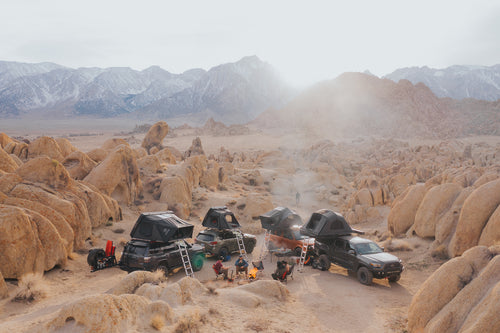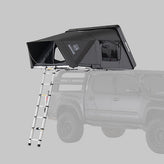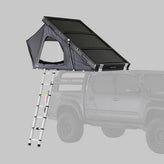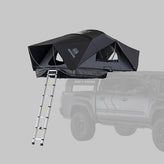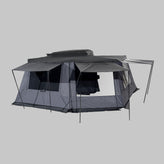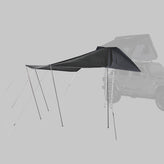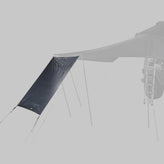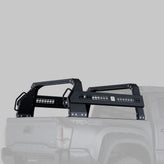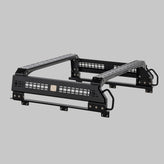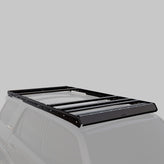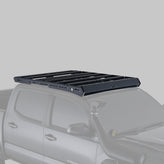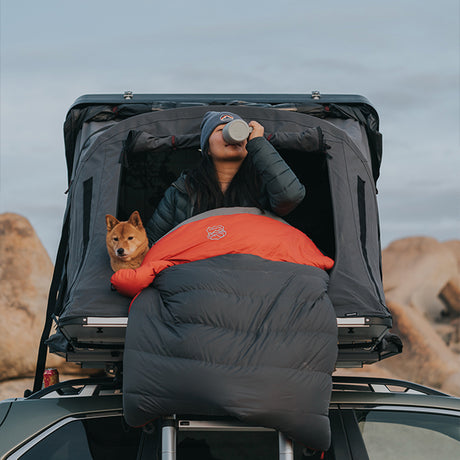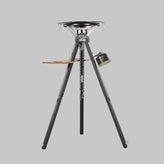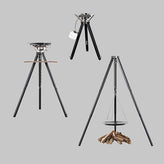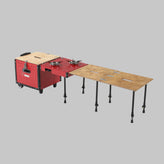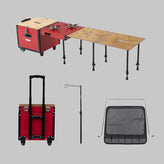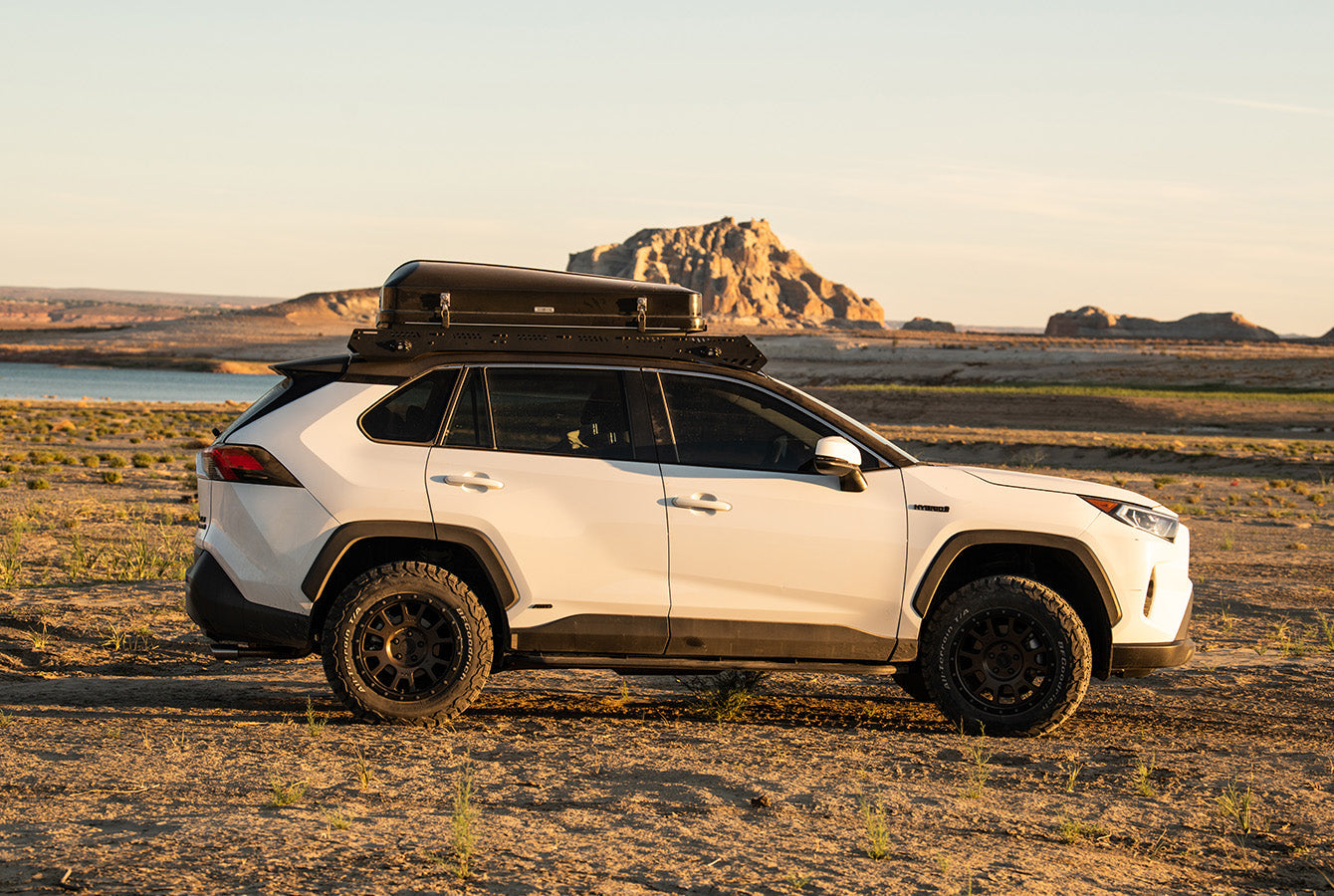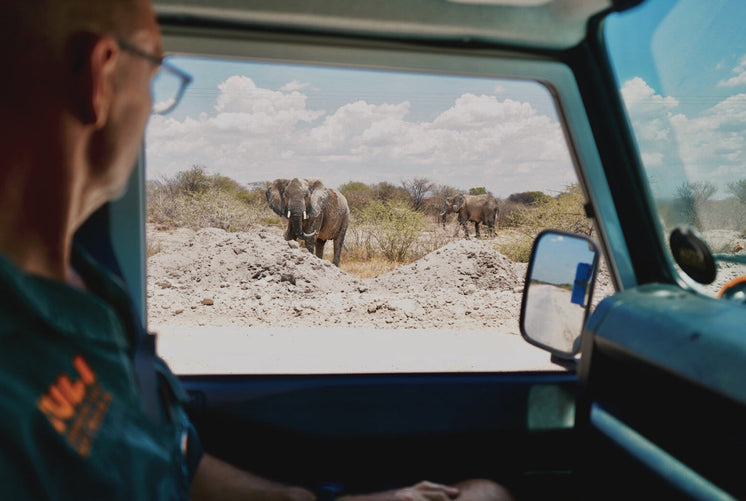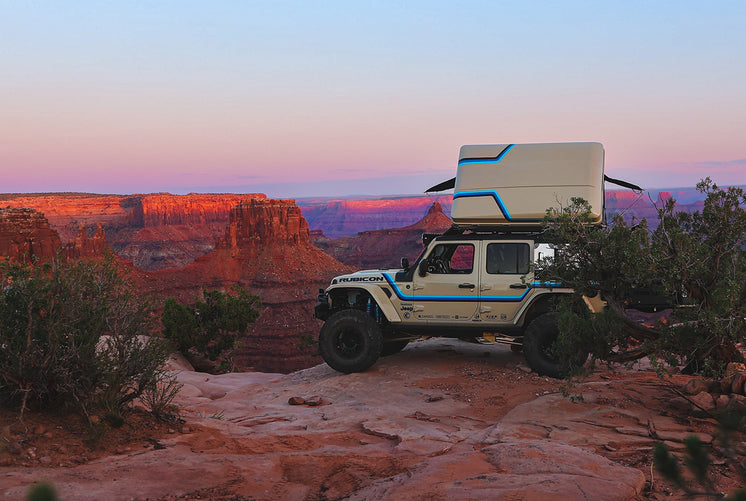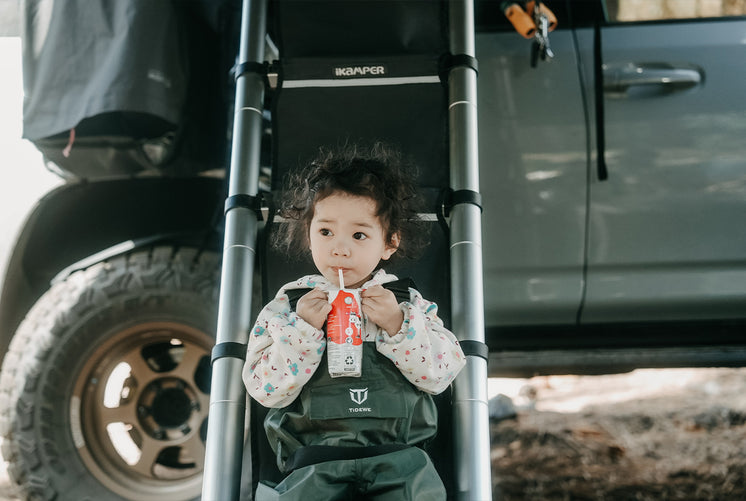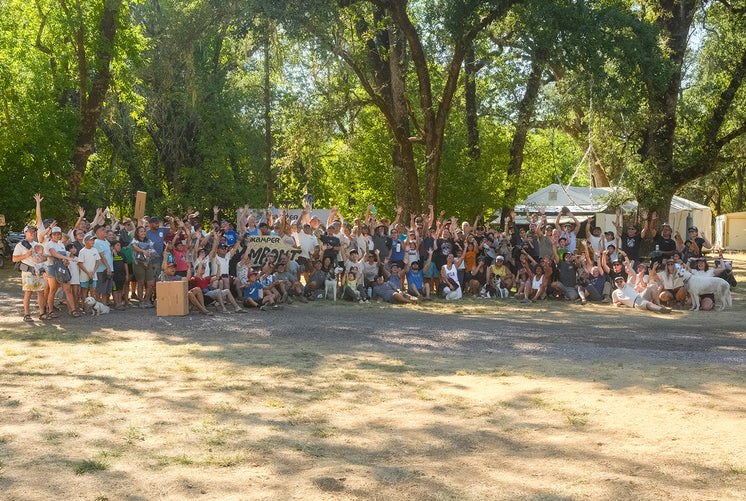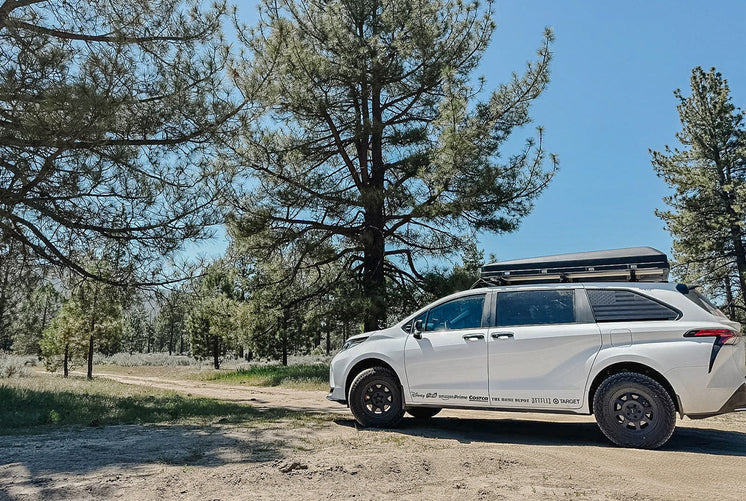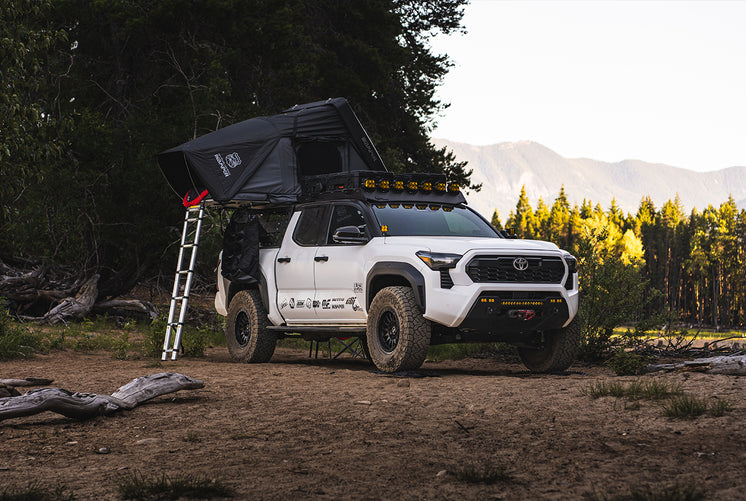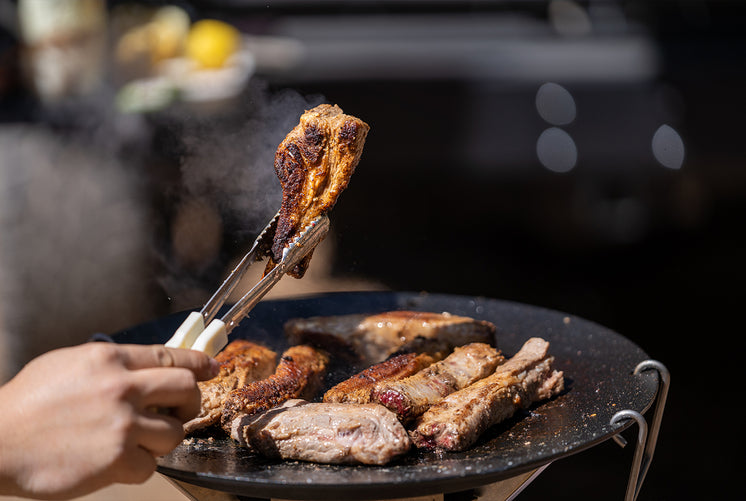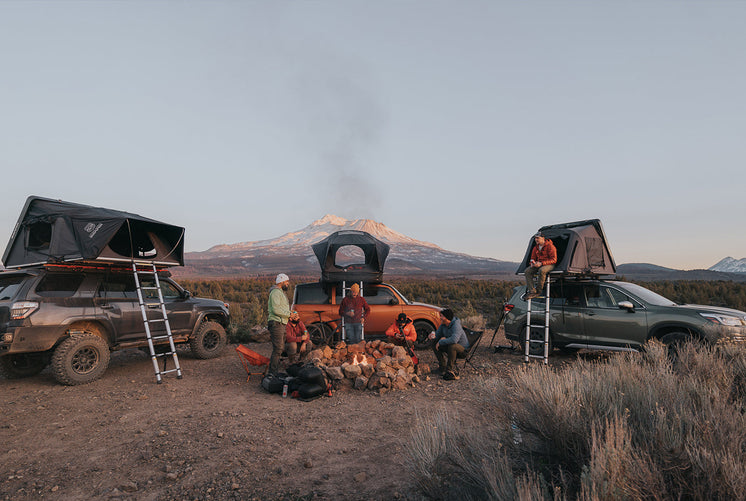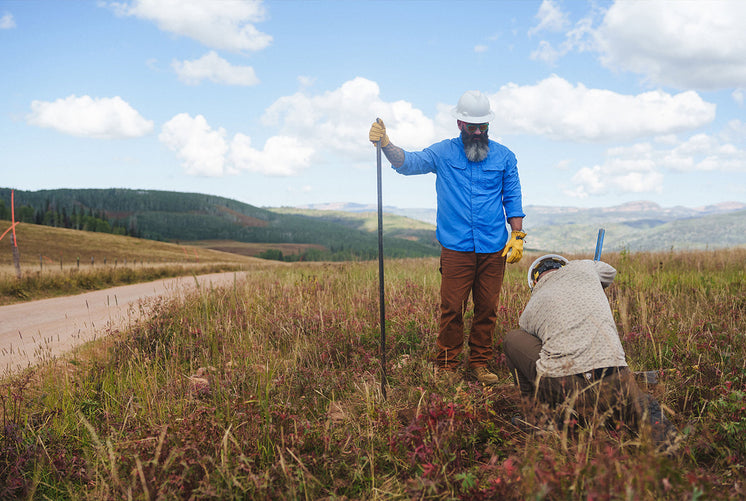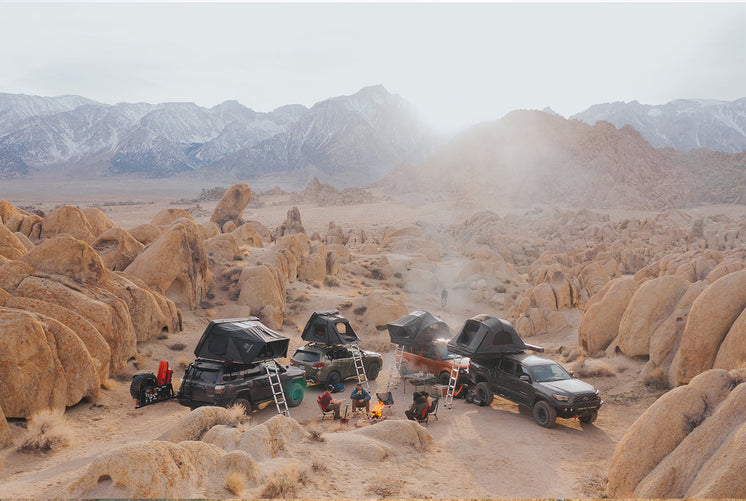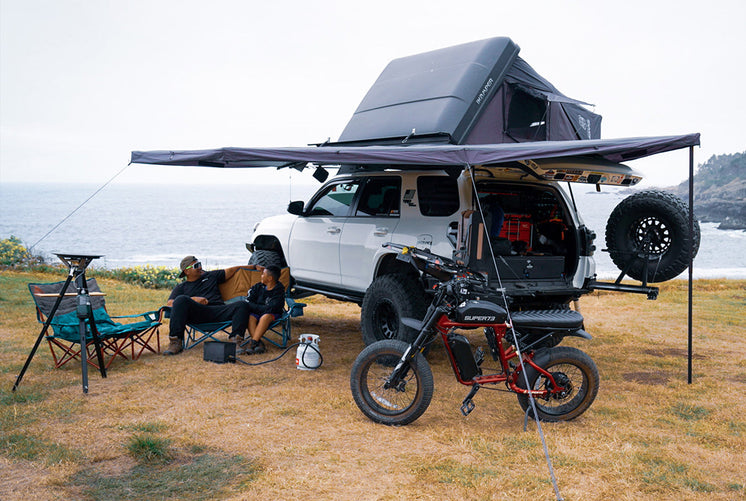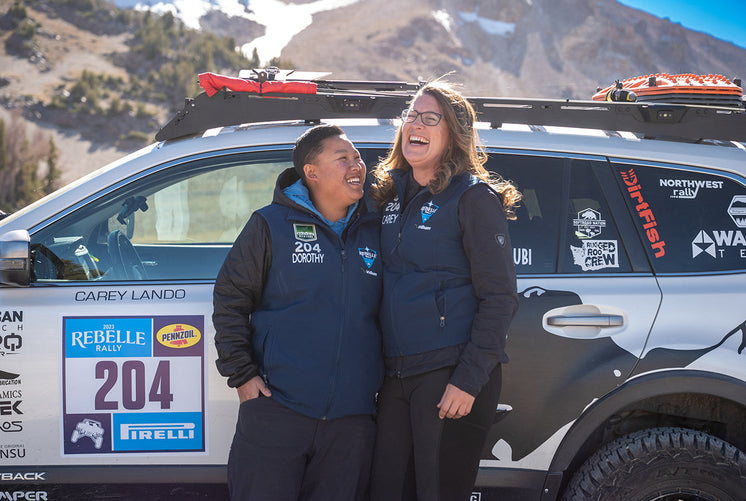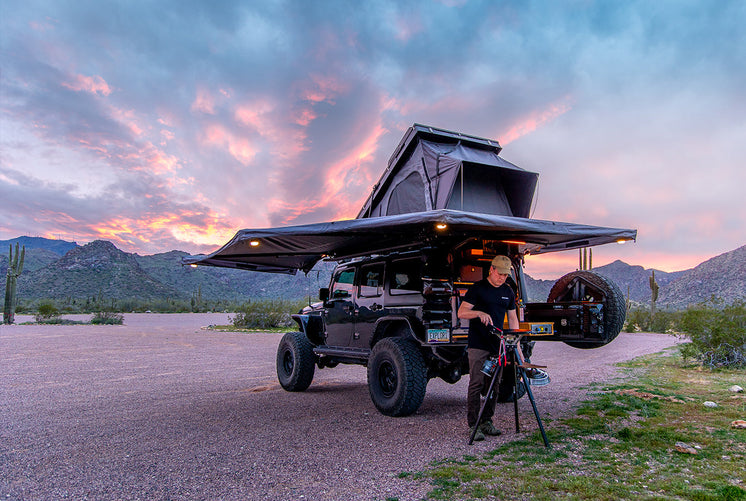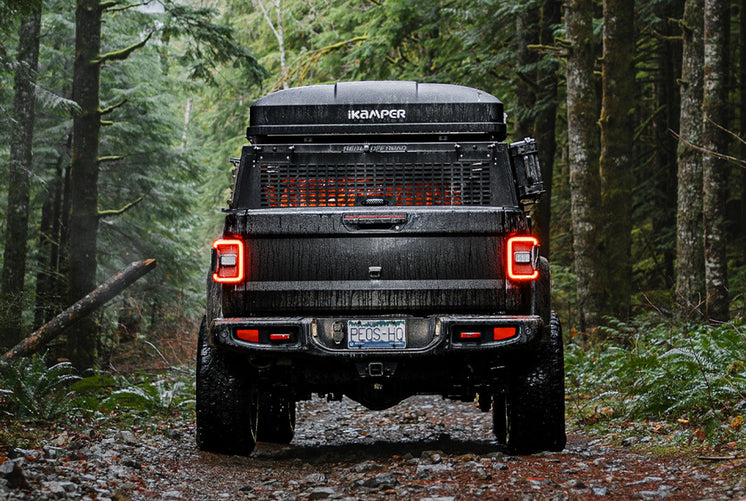What Is The Best Car for Camping?
The relentless nature of the daily grind has become a lot to shoulder these days. Even with the flexible shift to working remotely, it can feel like life has lost its boundaries. The desire to step into your car and drive until service disappears has grown increasingly urgent and increasingly accessible as camping experiences something of a renaissance. Gone are the days when car camping was defined as stretching across the cramped and lumpy back row of your hatchback. With the introduction of roof top tents, camper conversions, and a sophisticated abundance of accessories, it can be downright luxurious.
What Types of Cars Can Be Used as a Camper?
Nearly any vehicle can serve as an entry to car camping. It doesn’t have to be the latest off the assembly line to get you to a state park or public lands. However, for those seeking to go all-in, there are some key factors that define the best cars for camping.

8 Considerations For Car Camping Vehicles
1. Storage Capacity - The more capacity a vehicle has to pack in, the more potential it has to accommodate campers, activities, and extended trips. If you plan to hit the trail for more than a weekend or enjoy recreation that comes along with its own gear (surfing, cycling, skiing, hunting, you name it), you’ll need a vehicle large enough to fit everything. And if you’re forgoing a tent, the best cars to sleep in for camping will have seats that fold flat or stow away to make room for your sleeping pad.
2. AWD/4WD - All-wheel drive or four-wheel drive systems are non-negotiable in our book. They offer more control and stability in conditions you’ll commonly encounter while camping. They are not synonymous, but both send power to all four wheels to improve traction in adverse conditions such as heavy rain, slush, muddy trails, or challenging, loose terrain.
3. Fuel Economy - Don’t underestimate the value of good mileage. It’s nice to think of dispersed camping as free, but hidden costs add up. The expense of gas isn’t strictly hidden, but price fluctuations can throttle a budget when driving long distances. Fuel efficiency will also decrease as soon as you begin adding weight to the car and mounting equipment that creates drag. If you drive remote roadways getting fewer miles per gallon, will your tank run empty before you pass the next gas station? If you choose a hybrid or electric vehicle, will you be able to charge it reliably?
4. Static and Dynamic Weight - Static weight is how much a vehicle’s roof can support while the car is parked. Dynamic weight is how much the roof can support while in motion. Simple enough, right? If you plan to explore the world of roof tents, static and dynamic weights are critically important. Be sure to account for the combined weight of the roof rack, the RTT, and the passengers who will be sleeping inside once you set up camp. Know your limits and respect them.
5. Payload - Payload is the weight capacity a vehicle can support, and the ones with higher payload make some of the best car camping cars. This number is usually listed in the owner’s manual or the doorjamb on the driver’s side. It’s sometimes written as a cautionary statement, such as, “combined weight of passengers and cargo should never exceed” a determined weight. That includes anything added into or on top of the vehicle. No matter how much you want your compact car to take you to the mountains, it might not be built to hold the weight of your aspirational camping.

6. Towing Capacity - Think of the difference between payload and towing capacity as what the car can carry and pull. They’re not the same, but they’re not exclusive from one another, either. This number can also be found in the owner’s manual for larger vehicle classes, but if it’s not, you can calculate it. Subtract the Curb Weight (weight of the vehicle and operating fluids) and Gross Vehicle Weight Rating (how much it can structurally support while parked) from the Gross Combined Vehicle Weight Rating (how much the tow vehicle and trailer can weigh together when loaded) to determine towing capacity. You may not want to tow a trailer or camper behind your car now, but that can change over time. As you shop around, we recommend considering if you can install a trailer hitch on a vehicle and the maximum weight it can safely tow behind it.
7. Suspension - This system stabilizes the car and keeps things comfortable when traveling over inconsistent terrain. If the idea of rock crawling to reach base camp appeals to you, many overlanders prefer to upgrade their suspension. That may not be necessary, depending on how and where you plan to camp. For a weekender taking mostly paved roads to state or national parks, any vehicle with stock suspension will be just fine. For driving Forest Service roads or trail roads, going deep into public lands, something with a more robust suspension will serve you well - especially when fully loaded. Are upgrades a worthwhile investment? Maybe, but not something to rush into until you have a clear idea of the experience you’re seeking.
8. Clearance - Ground clearance is the distance between the lowest part of the vehicle and the surface of the road. Even if you don’t see yourself off-roading, camping in shoulder seasons or inclement weather can significantly impact road conditions. On trail access or gravel service roads, you’ll want at least 8.5 inches of ground clearance. This will help prevent damage to the car while navigating obstacles like rocks, creeks, and ruts. 10.5 inches of clearance should be the bare minimum when it comes to more serious off-roading, like rock crawling. These numbers are just a starting point. The terrain you drive will ultimately dictate the practical minimums.
Vehicles that overachieve on these considerations are Trucks, SUVs, Crossovers, and Vans. There are exceptions, and you will find some great wagons and vehicles in other class categories that can meet your needs. The newest models will have all the bells and whistles, but the market for used vehicles is a great place to find affordable car camping prospects.
What Is a Car Tent?
For anyone uninterested in sleeping inside their car, roof top tents are a compelling alternative. Car tents, also known as roof tents, mount to the roof or bed rack of a vehicle. They offer a host of advantages, such as freeing up storage capacity, unobstructed views, quick set up, and spacious beds for a restful night’s sleep. There is a fair range of models to accommodate different vehicle classes and outdoor interests.

Types of RTTs
- Hard Shell: Many hard shell roof top tents feature an expansion panel, so the tent can maintain a tight footprint on top of your vehicle without sacrificing sleep capacity. The Skycamp® 3.0 has an aerodynamically contoured hard shell to reduce drag and allow down bedding to be stowed inside.
- Soft Shell: Lighter than a hard shell tent and more similar to a traditional ground tent. These RTTs are generally less expensive than their counterparts but not as long-lasting. The soft textile design doesn’t weather inclement conditions as well as a hard shell tent, either.
- Wedge: These are some of the fastest tents to deploy - we’re talking seconds. Wege tents benefit from their utilitarian design and ability to load gear on top without unloading when the tent is deployed. Think solar panels and cargo boxes. Models like the BDV™ also feature t-track rails to mount additional equipment along the sides of the tent.
- Hybrid: Some roof top tents don’t fit neatly into established categories. The X-Cover® 2.0 uses a book fold design to blend the lightweight benefit of a soft shell tent with a hard FRP exterior. The flat top even features integrated cross bars for mounting equipment like bicycles and kayaks.

Best SUVs and Crossovers for Camping
When it comes to camping, SUVs have a lot going in their favor. They can accommodate plenty of passengers, are comfortable to ride in, and most will feature AWD or 4WD systems. Not only do they have plenty of storage capacity, whatever you pack is going to stay dry, secure, and dust-free. They can support substantial weight on the roof and offer towing capacity, but access to rear cargo storage will become limited once you attach a trailer. Whether it’s a compact crossover or a full-size SUV, this body type has been designed for practical use, hence the name, sport utility vehicle. A few of the ones listed here have origins as wagons, and that still shows through in their latest models. Everyone’s entitled to an identity crisis, and we don’t care as much about their class evolution as their standing reputation for being some of the best SUVs for camping:
- Jeep Grand Cherokee: well known for its off-road prowess and deluxe interior. Rugged, reliable, and capable of towing over 7,000 lbs which makes up for its below-average cargo capacity.
- Subaru Outback: a great entry vehicle to car camping because it doubles well as a primary commuter car, has plenty of cargo room, ground clearance, AWD, and payload. The rear seats will also fold down to accommodate a sleeping inside if that’s your preference.
- Toyota RAV4 Hybrid: compact as far as SUVs go, but still offers generous cargo storage with the rear seats folded down. It earns top marks on fuel economy thanks to its hybrid tech.
- Ford Bronco Sport: has standard AWD and respectable crash scores. Boasts a suite of features that complement car camping, such as roof racks fit for RTTs, a cargo management system with a rubberized floor, a slide-out table, and built-in tie-downs.
- Ford Expedition: a full-size SUV with a twin-turbocharged engine and solid ground clearance. Agile off-road with room for an entire cabinful of campers. Limited cargo capacity.
- Toyota 4Runner: a favorite for car campers, with a vast world of aftermarket modifications available. It’s easy to maintain, highly-capable off-road, and has more than enough room for you and everything you might bring along for the ride. It can handle RTTs and towing trailers, but mileage leaves a lot to be desired.
- Subaru Crosstrek: standard AWD, great off-road capability, ground clearance, and safety ratings. As a compact crossover, it doesn’t offer as much cargo capacity as the Outback, but it’s nimble to navigate through tight spaces. Available as a hybrid for those looking to splash out on the long-term investment.
- Honda Pilot: ample cargo room and capable of towing as much as 5,000 lbs when properly equipped. Performs well off-road, available in AWD or FWD. This family-friendly crossover has long been a staple for car camping.
Best Trucks for Camping
By and large, trucks won’t have great fuel economy, but they will offer more storage capacity and payload than the average vehicle. They’re great off-road and endlessly customizable with racking, tailgate, and cargo systems. A few strong advantages of the truck’s body: the passenger cab is separate from whatever you’re transporting in the bed, ideal when camping gets messy. Access to the truck bed storage isn’t restricted when towing a trailer, as you can still reach in from the sides. And, of course, flexible configuration of cargo. A few disadvantages: the vehicle’s storage capacity is less secure due to the open bed, so things will need bolted or tied down unless you invest in a canopy or cover. Anything uncovered in the truck bed will also be fully exposed to the elements, including dust, mud, rain, and snow. For most trucks, the cab won’t be long enough or strong enough to support a roof tent, so you’ll need a bed rack if that’s the type of camping you’re set on. Some of the best trucks for camping include:

- Toyota Tacoma: Not as substantial with cargo space as other trucks, but it is towing capable and wildly popular for aftermarket modifications. If you want your car camping vehicle to be a blank canvas to customize, the Tacoma and 4Runner present the crowd favorites for Truck vs. SUV. Why? They’re easy to find secondhand when new is in conflict with custom.
- Rivian R1T: not only an all-electric truck, it’s also rewriting expectations for performance vehicles destined for the outdoors. Every bit as capable as a gas-powered pickup, with plenty of cargo capacity and ground clearance, all wrapped up with luxury features from end to end. There’s even a kitchen upgrade available. Truly - this truck wants to take you camping and cook you breakfast. The catch, like any EV, is that range limitations may require compromises to how far your overlanding takes you from charge to charge.
- Honda Ridgeline: custom accessories like a tent for the truck bed give it a slight edge over other trucks where camping is concerned. Built on a crossover frame, it rides like a car without sacrificing cargo or towing capacity. It even includes in-bed speakers and power outlet.
- Jeep Gladiator: as rugged as a mid-size truck gets and the only one to offer removable doors and roof. Exceptional off-road, but the tradeoff is a noisy cabin and lesser handling on paved roadways.
- Ford F-150: popular for aftermarket customization, also available as a hybrid model. Its full size can be hard to maneuver on tight trails, and the fuel economy isn’t anything to write home about.
- Chevrolet Colorado ZR2: may not have as much payload as other trucks, but it’s unlikely you’ll overload it car camping. Multimatic suspension delivers a great ride on and off-road.
- Ram 2500: this three-quarter-ton truck has more payload and towing capacity than any camper could need. A powerful, capable vehicle for work or play with no shortage of luxury trim options.

Best of Everything Else for Camping
Cars, wagons, and vans are going to tick many of the boxes like fuel economy, AWD/4WD, and certainly comfort, but fall short in other areas like ground clearance or towing capacity. The best cars for road trips and camping will generally have a wagon body type, and vans best suited to overlanding will be the sprinter or cargo variety. This list covers a few of the corner cases that stand out as:
- VW Golf Alltrack: not as much ground clearance, but it will do just fine on an average dirt road and features AWD. Roomy interior for a compact car with plenty of cargo capacity. The shorter vehicle height makes loading roof racks much easier to manage than an SUV.
- Volvo V90 Cross Country: luxury wagon with standard AWD to complement its excellent suspension and safety features. It’s not built for off-road performance, but its ground clearance and towing capacity make it much more capable than it appears at first glance.
- Audi A4 Allroad: a long roofline, refined finishes, and generous cargo capacity make this wagon perfect for understated adventures. It features standard AWD, a turbocharged, four-cylinder engine, and a lifted suspension for respectable clearance while seeking rolling hillsides over wild canyons. Pair it with a roof top tent and a secluded destination somewhere in between the frontcountry and backcountry.
- Toyota Sienna: one of few minivans available with AWD, and the latest editions are exclusively hybrid. It would be a stretch to call this off-road capable by any means, but it would work well for more accessible camping destinations at state or national parks. Split & Stow 3rd Row® seats make plenty of room to sleep inside and pack more cargo than you can shake a stick at.
- Mercedes-Benz Metris Getaway: boasts an impressive payload, in excess of a ton. This van blurs the line between adventure vehicle and commuter, and all its top-of-the-line features come at a steep price. Includes a pop-up camper and optional upgrades like solar panels and roof racks.
- Chevrolet Express 1500: this AWD cargo van is prime for camper conversions. The broad range of aftermarket accessories allows you to configure and customize to your heart’s content.

Thinking About Buying a Vehicle For Car Camping?
As you research your options, remember that cars can be modified or customized (for a price) to better suit your needs, whether that’s upgrading tires, suspension, racking systems, bed systems, you name it.
Maybe you just want to car camp a few times a year, or maybe you want to follow the road and commit to full-time van life. Camping is only one part of the equation. Will the vehicle you take camping be your primary or secondary vehicle? How will it serve you day to day? If you already have a practical vehicle for car camping, and you’re ready to start outfitting it, explore tents and accessories to make the experience even better.
